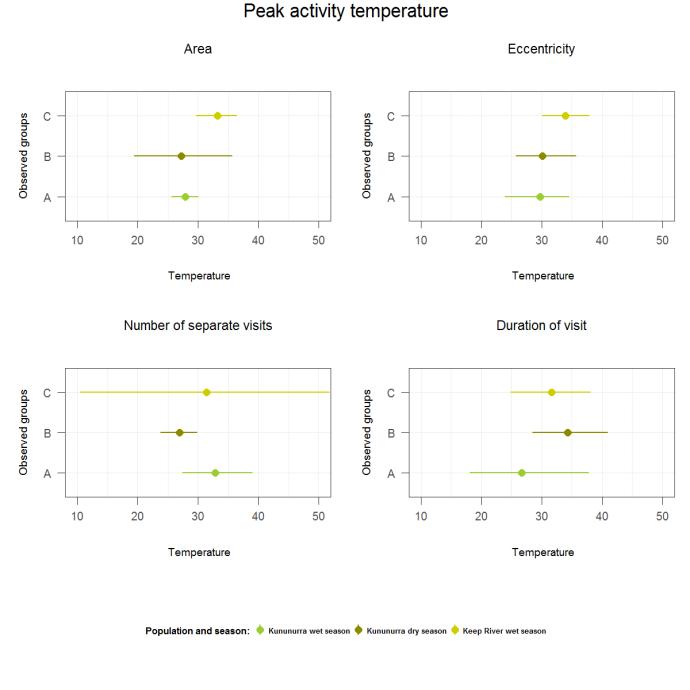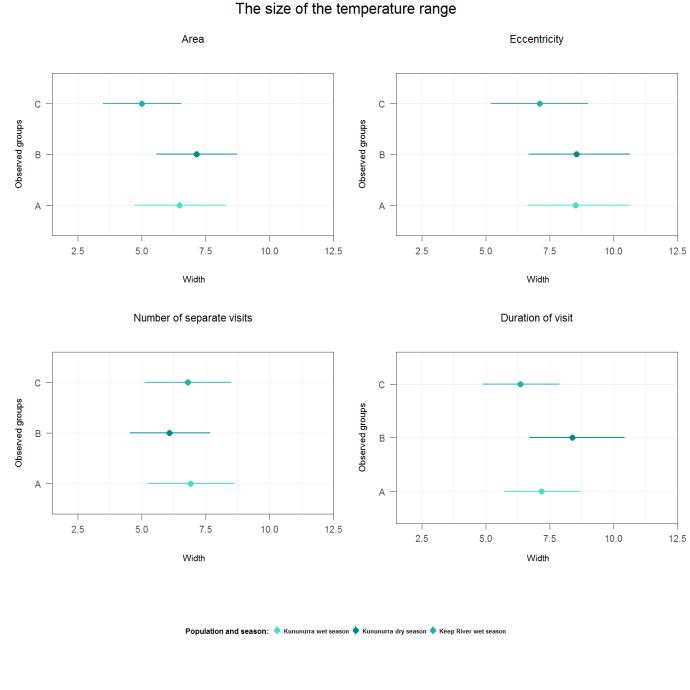In total, approximately 20 000 data points were analyzed to obtain parameters which describe lizard movements. The results of the temperature effect on movement parameters examined with the novel hierarchical Bayesian model developed here, for different seasons on both locations were subjected to a credibility analysis.
Peak activity temperature population parameter shows those temperature values during which measured movement parameters were the highest, meaning that they show which temperatures caused the bluetongues highest activity. Non-overlapping credibility intervals would give substantial support for the hypothesis that the effect of temperature for the population level parameters differed between wet and dry season. However, activity peak temperature overlapped for all seasons and locations, revealing no clear difference between seasons.
There are some differences between wet seasons for different populations, when comparing credible intervals for the area parameter. Even though the overlap is small we cannot claim these two groups are different. The same can be said for comparison of Keep River dry season with Kununurra wet season credible intervals for the nsv parameter.
Population distribution width parameter reflects differences in temperature ranges of animal’s activity. Larger width parameter indicates larger span of temperatures within which animal is active. Width parameters were calculated and their 95 % credible intervals compared between two localities and different seasons. Analyzed data shows no difference in ranges of animal activity for different population parameters.


Responsible for this page:
Director of undergraduate studies Biology
Last updated:
05/19/17
